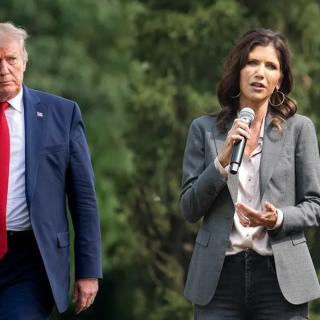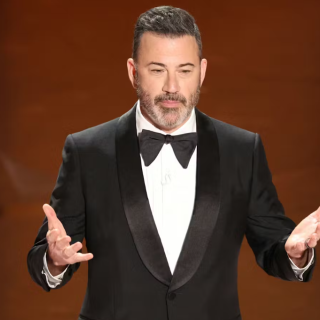Two and a half months ago, I published this letter to the editor in the Toledo Blade, Aug. 29, 2021:
Where is the Ohio Democratic Party?
“Where is the Ohio Democratic Party? Commentators like me address Ohio’s unusually severe gerrymandering and the outpouring of partisan, often dark-money and questionably legal campaign contributions for the right-wing Republican dominance in the state. This is certainly true.
“But there is another reason: the seldom discussed absence of the state Democratic Party. To speak for myself: I am literally bombarded with emails and postal mailings (despite the failings of USPS) for the national Democratic Party (in many different forms), progressive advocacy groups (MoveOn and CommonCause, for example), and more traditional groups like the ACLU. I have never heard from the Democratic Party of Ohio. I receive mailings, including personal notes, from only one elected Democrat, Sen. Sherrod Brown.
“I have attempted to contact the state party and reached out to candidates ranging from Tim Ryan and Nan Whaley to District 15’s Allison Russo. I have never received a response.”
Now Ryan and Whaley ask for dollars.
On October 21, 2021, I wrote in the Columbus Free Press:
On the absence, silence, and partisan politics within the Ohio State Democratic Party
“The question raised for me concerns the State Democratic Party’s secretive decision to engage in joint fund-raising for one Democratic candidate—long-time party presence Tim Ryan—in the U.S. senatorial primary and general election campaigns, and not the other, Morgan Harper. To my mind, Harper is better informed and more articulate than U.S. Representative Ryan.
“On hearing of the Party’s action, I immediately emailed the Democratic Party of Ohio the following (Tues., 10/19/2021, 6:39 PM), as yet unanswered:
I challenge you to respond. Neither the Party nor any of your endorsed candidates has ever responded to my outreach, except Sherrod Brown, not Ryan, Whaley, Russo, or others.
You are silent, disorganized and undemocratic. Most recently, you have established joint fund-raising with only one of two viable candidates for the open Ohio U.S. Senate seat. You are supporting without any input from Democratic voters, a party regular. Ryan has no policy positions and is not a compelling speaker.
In favoring Ryan before the primary, you are not only playing partisan politics within the party but discriminating against a highly qualified and respected black woman.
Who is making these undemocratic decisions with no input from the rank and file?
Do you have the sense and courage to answer me? I will support individual Democratic candidates but NOT this party.
“Up to press time, I had received neither acknowledgement nor response. I expect neither.”
The Ohio Democratic Party’s silence echoes loudly throughout the polity and the media.
Why is the Democratic Party of Ohio not a party along with CommonCause, ACLU, and League of Women Voters to legal suits over the unconstitutional gerrymandering efforts of state Republicans who violated the very laws they enacted?
An article in the Columbus Dispatch on November 7, 2021, “Ohio Democrats clash over debates, party identity as U.S. Senate primary nears,” adds to this picture of undemocratic, disorganized, and errant ways. Although the reporter misdirects attention to a “clash” between the standing interests and progressives, she notes that not only has the Party set up a joint fundraising account with Ryan’s campaign, but that former Party chair David Pepper believes that Ryan is “the overwhelming favorite and frankly has earned that through years of hard work.” Meanwhile, the Party disparages rather than welcomes its progressive members.
That’s a curious formula for political favoritism when there is a qualified, diverse primary challenger, and before any voters have had an opportunity to speak. The article notes that “For some voters, Ryan’s candidacy doesn’t cut it.”
The Party failed to advise President Biden to endorse Allison Russo for Congress until the day before the special election. Or to advise Columbus Mayor Ginther and other city Democratic leaders to oppose the probably illegal Issue 7 on “green energy” until five days before the November 2 election.
The State Democratic Party enunciates none of the urgent concerns about the welfare and the needs of the Ohio public, nor an inclusive conception of the public. That’s not how elections are won.
Personally, I am worried about Ryan’s and the Party’s silence while the Republican Trumpists dominate the airwaves and print media. Neither Ryan nor the Party, unlike their Republican opponents, promotes joint appearance s or voter-educating debates.
The Republicans singly and collectively voice distortions, misrepresentations, ahistorical lies, and unconstitutional positions. They compete to be the Trumpiest, despite the fact that at least one of them (novelist and financial trader J.D. Vance) took a strong anti-Trump stance in 2016. They voice support for Nazism, racism, limitations on women’s choice, banning the teaching of inclusive history, unconstitutional gun “rights,” restrictions on voting rights, and limitations on free speech. (Vance screams, imitating Ronald Reagan without acknowledgment, “Fire the professors.”) They ignorantly imitate right-wing propagandists across the U.S.
Josh Mandel delights in burning Covid-19 masks and acting like a maladjusted adolescent. Jane Timken accepts financial donations from supporters that she refused to accept when she was State Republican Party chair. And Vance announces positions on taxation that directly contradict the national and State Republican Party platform.
But Ryan and the Party are silent.
Once again, I must ask: Where is the Ohio Democratic Party?
-------------------------------
Harvey J. Graff is Professor Emeritus of English and History and Ohio Eminent Scholar at The Ohio State University. He is the author of many books on social history including The Literacy Myth (Academic Press, 1979, new edition 1991) and The Dallas Myth (University of Minnesota Press, 2008). His specialties include the history and present condition of literacy and education, children and families, cities, interdisciplinarity, and contemporary politics, culture, and society.



